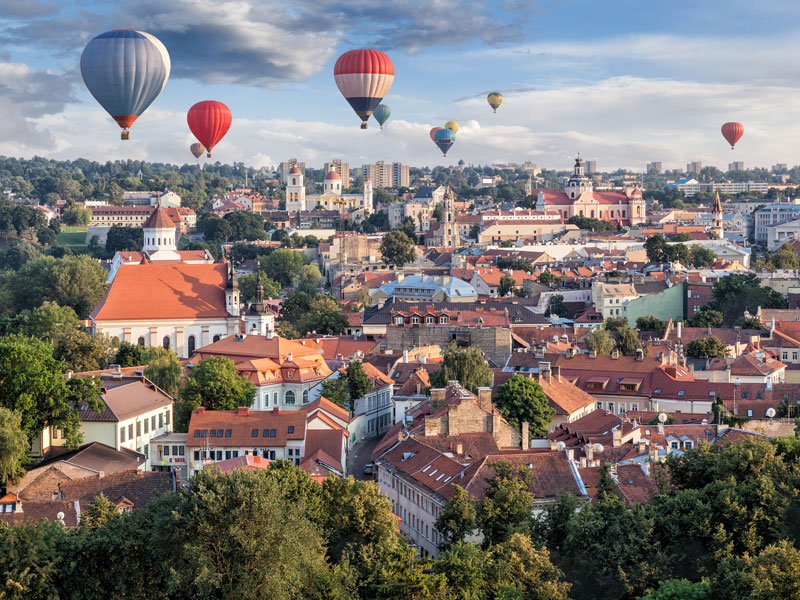
The grinding monotony of a nine-to-five job can be enough to make anyone dream of sandy beaches, ski chalets or meandering along faraway thoroughfares. But while the desire to escape may be without limit, an individual’s holiday allowance is not. Unfortunately, short of winning the lottery or a big inheritance windfall, most people will have to do a lot more working than vacationing.
A new business trend, however, could allow individuals to combine the two. The ‘workation’ has grown in popularity over the past few years, with many firms encouraging staff to combine some of their leisure time with small tasks from the working week – namely, emails, spreadsheets and meetings. Some businesses even offer generous benefits to ensure employees feel more comfortable taking time off.
Of course, the idea of a workation is relatively new and has only been made possible by the rise of digital technology. Unlike the concept of a digital nomad – someone whose job is independent of location, allowing them to work wherever they want – workations are aimed at full-time employees who simply elected to operate remotely for short periods, either as a personal choice or because their employer has decided it would be in the long-term interests of the firm. Time away from the desk, it seems, is not only advantageous for employees: it provides productivity benefits for employers, too.
Workation programmes can serve as a great entry point for visitors who may not have otherwise visited a particular city or region
Point of departure
A cynical view might be that workations end up delivering the worst of both worlds: employees may struggle to focus on their jobs with the whiff of sea air distracting them, yet are unable to truly enjoy their surroundings in the knowledge that they’ve got a list of tasks to complete. The growing popularity of workations, however, suggests that this is not how they play out. Whether organised by employee or employer, workations offer numerous benefits.
Inga Romanovskienė, General Manager of Go Vilnius, the official development agency of Lithuania’s capital city, knows more than most when it comes to the advantages of workation programmes. Since 2018, Go Vilnius has organised Workation Vilnius, a motivational programme that businesses can apply to take part in. Three chosen firms then select up to 10 employees to enjoy a one-week stay, working and living in Vilnius. The programme promises to improve employee retention, boost productivity and transform company culture.
“Changing the work environment brings out fresh perspectives, with workations proving especially useful for brainstorming or strategic sessions,” Romanovskienė told European CEO. “For example, this summer we hosted Hugo Boss Textile Industries from Turkey. It wasn’t part of our workation programme – their management team came to Vilnius by themselves for their annual strategy session.
“The first part of their stay was dedicated to inspiration – they met various Lithuanian companies here in Vilnius that come from completely different industries to their own to talk with them about how they make strategic decisions. These talks became a foundation for their own strategy session that was planned for the end of the workation, by which point the team was already loaded with ideas from those different sectors.”
Workations are also used by some businesses as team-building exercises. One set of employees taking part in the Workation Vilnius programme consisted of various specialists from different fields and departments that only came together to work on certain projects. “The workation gave them an opportunity to get to know each other better – not only as colleagues, but as individuals as well,” Romanovskienė said. “They were discovering a foreign city together, getting through leisure activities together and forming a sense of unity. We have a particularly uniting experience here in Vilnius: a hot air balloon flight over Old Town, which was enjoyed by all the Workation Vilnius participants. Overcoming the fear of heights together with your colleagues is truly unifying.”

Experiences like these are not only about creating a better working environment for members of staff, either: they also deliver improved financial results. According to a recent study by Gallup, engaged teams deliver 21 percent higher profitability.
A chance to get away
The three chosen participants of the 2019 Workation Vilnius programme were Siemens Smart Infrastructure, Monese and British Airways, each of which was able to benefit from Vilnius’ burgeoning fintech scene, experience its start-up ecosystem and enjoy its renowned baroque architecture. However, they are far from the only organisations to see the benefits of sending their employees on work trips abroad.
In 2018, Japanese tech firm Nulab launched a ‘resort work’ programme that allowed employees to visit certain locations in order to combine work and pleasure. Authorising working vacations can be particularly reassuring for members of staff who are worried about taking time off, concerned they might be leaving colleagues in the lurch or that their workload may get out of hand if left unattended. In Japan, where getting employees to leave their desks is a particularly pronounced problem, more companies have adopted the workation model. Tokyo-based travel agency JTB, for example, invites employees to work in its Hawaii satellite office each year so they can have a holiday without feeling stressed about missed deadlines.
Of course, a workation should not be seen as an alternative to taking annual leave – employees need time to fully switch off from their day-to-day responsibilities – but they can function well as a supplement to existing work initiatives, serving as a much-valued policy in firms where members of staff seemingly have to be dragged away from their desks.
A workation should not be seen as an alternative to taking annual leave – employees need time to fully switch off from their day-to-day responsibilities
The host with the most
Employees and employers are not the only parties to benefit from workations: host cities profit, too. Workation programmes can serve as a great entry point for visitors who may not have otherwise visited a particular city or region, boosting the local tourism sector.
“Vilnius has benefitted from workation trips in many ways,” Romanovskienė said. “First of all, the programme is accompanied by a marketing campaign targeted at businesses. This way, we reach our target audiences with a message that Vilnius is well balanced for both work and play. When an employee of a certain company gets interested in participating in the programme, [they have] to spread the word further in order to assemble the team.
“After the workation, the participants share their impressions [of] the city with their colleagues, and these first-hand testimonies often serve as an important factor in discovering our city. Most participants of the Workation Vilnius programme claimed they would be visiting Vilnius again, this time with their friends or family.”
The Workation Vilnius programme is set to return this year, providing the city with another opportunity to dazzle and delight international employees looking to relax, recharge and be inspired. With digital technology making it easier than ever for workers to stay connected with the office, there is no reason why they can’t be productive elsewhere – be that making a sales call from the beach or taking part in a brainstorming session in a hot air balloon above the Lithuanian capital.

